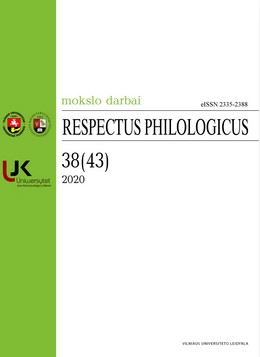Kvalijos struktūrų modifikacija vartojant santykinius lietuvių, rusų ir vokiečių kalbos būdvardžius
Modification of Qualia Structures Using Relative Adjectives in Lithuanian, Russian and German
Author(s): Vasiliy Glushak, Vilma Kaladytė, Olga GowinSubject(s): Theoretical Linguistics, Lexis, Semantics, Comparative Linguistics, Eastern Slavic Languages, Baltic Languages
Published by: Vilniaus Universiteto Leidykla
Keywords: qualia structure; attribute; relative adjective; genitive attribute; composite;
Summary/Abstract: Relative adjectives are immediate nominal explicators (nouns) that play a key role in meaningful structures in the Russian, Lithuanian, and German languages. This article investigates the semantic representation of a noun in an attribute group with relative adjectives comparatively using the Qualia structure and its modifications. The most commonly used 150 relative adjectives in the electronic corpora of the Russian written language were selected for analysis. They are compared with Lithuanian and German examples. Relative adjectives are classified as quality structures and are considered to imply objective constitutive properties (matter and origin), formal attributes (physical parameters, colour, time, and place) and telic attributes. Other correlating linguistic units, namely, genitive constructs and composites, are also analysed describing the expected realizations of Qualia structures in the noun group.
Journal: Respectus Philologicus
- Issue Year: 2020
- Issue No: 38(43)
- Page Range: 40-53
- Page Count: 14
- Language: Lithuanian

